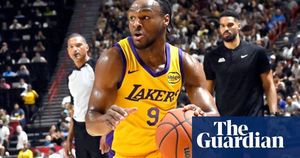Target Corp. recently announced its decision to roll back its diversity, equity, and inclusion (DEI) initiatives, igniting widespread backlash and calls for boycotts from various communities.
Once heralded as a corporate leader prioritizing inclusivity, Target's new measures focus on halting commitments to equity programs aimed at hiring more diverse candidates and supporting minority-owned businesses. According to CBS News, the company will no longer actively recruit from diverse groups and will scale back its job development programs for Black employees, which has left many feeling betrayed. Target previously stated, “The need for social justice is undeniable, and we’re committed to using Target’s size, scale, and resources to create positive change,” but this latest move has raised many eyebrows.
Kiera Fernandez, Target’s chief community impact and equity officer, elaborated on the rationale behind the decision, noting, “Many years of data, insights, listening, and learning have been shaping this next chapter in our strategy.” This statement seems to indicate Target’s desire to realign its objectives with what it perceives as the demands of its customer base. Yet, the fallout from this shift has been immediate and vocal.
Calls for boycotts have spread quickly across social media platforms, initiated by various influencers and community members. Pastor Beryl Cowthran (@revdrcoachbee) went viral with her protest, showcasing bags full of returned Target merchandise on TikTok, stating, “If I’m not good enough to work there and be respected and regarded the way I should be, then guess what? I don’t spend my hard-earned money there.” This event has garnered over 830,000 views, echoing sentiments shared broadly across the platform.
Another voice of encouragement for shoppers to rethink their spending is JusNene2.0 (@jusnene2.0), whose video racked up over 3.5 million views and urged others to refrain from shopping at Target and other retailers like Walmart and McDonald’s. “Black people stop shopping at these spots. This means now we gotta keep our Black dollars to our Black-a** selves,” she asserted.
Activists held protests outside of Target’s headquarters in Minneapolis, highlighting the broader societal contexts surrounding the boycott calls. Nekima Levy Armstrong, leading the rally, stated, “We thought they would hold the line. Instead, they acted cowardly.” With over 70 protesters attending, the rally reflected deep discontent with Target's retreat from its previously staunch support for DEI progress, especially considering the retailer's role following George Floyd’s murder, which ignited nationwide protests for racial justice.
The ramifications extend beyond social media challenges to the retailer's bottom line. Notably, Twin Cities Pride has announced it will not partner with Target for its upcoming events due to the company's decision. Cheryl Persigehl, one protestor and long-time Target shopper, articulated her disapproval, questioning, “How can you possibly believe this will be 'good for business'?”
The conversation around Target's decision reveals differing perspectives on how to respond. Activist Tabita Brown, who has collaborated with Target, faced backlash and urged patrons not to sever ties, warning this could harm minority-owned brands relying on the retailer's infrastructure for distribution. “Let’s not give them what they want. Don’t let them take us off shelves,” she argued, emphasizing the economic impact of such actions.
The dilemma of boycotting raises complex socio-economic questions: on one hand, withdrawing support from Target signals disapproval; on the other, it may inadvertently harm minority entrepreneurs whose products are sold there. Online discussions reflected diverse opinions, with some calling for targeted support of Black-owned businesses rather than eliminating shopping altogether.
Many commenters expressed solidarity with the boycott, echoing sentiments of disengaging from brands perceived to support systemic inequality. One user reported, “Literally Costco is all we got left,” highlighting the struggle to find retailers aligning with their values.
Moving forward, the activists aren’t stopping their outreach. With plans to collaborate with national organizations, they aim to amplify their message and maintain pressure on Target and similar corporations. Levy Armstrong concluded, “Target knows what its presence and commitment to diversity means to this community. That is why we are focusing on Target first.” The long-term fight is framed as one for corporate accountability and equity for marginalized communities.
Despite Target's statements indicating continued commitment to diversity through initiatives like “Belonging at the Bullseye,” disillusionment persists. Critics warn this doesn’t begin to rectify the grievances expressed by its former customer base. Until substantial changes are made, the calls for action are likely to resonate, continuing to influence consumer behavior and responses across the nation.
The evolution of this narrative around Target aligns with broader national conversations about corporate responsibility, representation, and the future of racial and economic equity. How this story will evolve remains to be seen, but the immediate impacts of these decisions are making waves.



